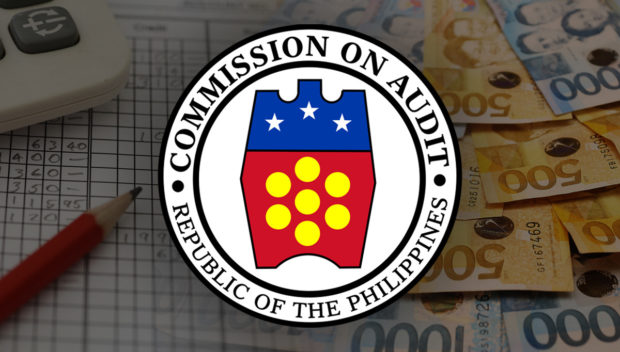MANILA, Philippines — Affirming that it had the exclusive constitutional authority to determine its auditing methods, the Commission on Audit (COA) said it was ready to ease some rules that may not be apt to a country dealing with the COVID-19 pandemic.
“Considering the emergency health situation, [COA Chair Michael Aguinaldo] already expressed that flexibility may be granted,” COA told the Inquirer in a statement emailed by its public information office.
In fact, state auditors eased the requirements for government agencies in the case of the social amelioration program of the Department of Social Welfare and Development.
Aguinaldo told lawmakers at a House hearing last week that the auditing process already included systems, including sufficient time frames, for individuals or agencies to explain or remedy adverse audit findings.
“With regard to the publication of audit reports on our website only, this has been done since the 1990s, if memory serves,” the COA said in their email statement.
This practice, the COA said, “hews to the principle of transparency which, among other initiatives, were the basis for our recognition by the government.”
Transparency
“It may also be possible for the commission to level up our transparency initiatives,” the auditing agency added.
In fact, governmental transparency was one of the campaign promises of President Duterte and the chief executive’s second executive order after assuming office in 2016 addressed transparency under the people’s freedom of information.
The Duterte administration has even begun to issue commendatory “Seals of Transparency” to compliant government agencies.
But to show that the COA was a partner, and not an enemy of improved governance, the commission was still willing to increase its flexibility.
But Deputy Speaker Bernadette Herrera said the COA and the agencies “must inform Congress of any flexibilities agreed upon and availed of concerning the spending, nonspending and audit of public funds.”
“However, it would not be in the public interest if the pandemic is taken advantage of as the excuse or scapegoat for everything involving how public funds are spent, recorded and audited. That should not be,” Herrera said.
According to her, the COA and the agencies involved must identify and solve the unusual and the recurring problems identified in the annual audit reports, so that permanent solutions could be applied.
She said there were glaring and significant audit findings that should not be ignored, adding that “our duty here in Congress is to not leave any stone unturned.”
She agreed with proposals that private auditing firms help the COA and also give suggestions on how to amend the “quite old” State Audit Code enacted in 1978.
Herrera urged the COA to issue a public statement that would summarize the annual audit process, such as the deadline on when the annual audit reports are supposed to be posted publicly on their website. INQ
